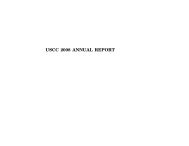e-commerce@its.best.uk - Fatal System Error
e-commerce@its.best.uk - Fatal System Error
e-commerce@its.best.uk - Fatal System Error
- No tags were found...
You also want an ePaper? Increase the reach of your titles
YUMPU automatically turns print PDFs into web optimized ePapers that Google loves.
UK PRINCIPLES FOR TAXATION OF E-COMMERCE• neutrality – taxation should seek to be technology neutral so that no particular form of commerce isadvantaged or disadvantaged;• certainty and transparency – rules should be clear and simple so that businesses can anticipate, so far aspossible, the tax consequences of the transactions they enter into;• effectiveness – tax rules should not result in double taxation or unintentional non-taxation. The overridingaim should be to ensure the right amount of tax is paid at the right time and in the right country;• efficiency – the compliance cost to business and the administration costs to government should be kept tothe minimum compatible with effective tax administration; and• The Government does not believe it is necessary at this stage to make any major changes to existing taxlegislation and regulation, or to introduce new taxes.Box 7.1taken to ensure that the regulatoryframework is up to date and does not placeunnecessary barriers in the way ofe-commerce. And the regulatory regimefor e-commerce also needs to address anumber of other issues:whether the convergence oftelecommunications, broadcasting andinformation technologies requires reform ofthe regulatory regimes and institutionsoverseeing the information industries;whether the changes in industrial andmarket structure and new businessopportunities brought about bye-commerce require new regulatoryregimes in other sectors of the economy;andwhether changes are needed internationallyas well as nationally.Recommendations andAnalysisRecommendations oncompetition and innovationRecommendation 7.1: OFTEL and theOffice of Fair Trading should carry outa review by end March 2000 to identifywhether there are emerging barriers tocompetition in electronic markets andmake recommendations for preventingany such barriers becoming seriousproblems.7.11 It was noted in chapter five that, ingeneral, e-commerce could have significantbeneficial effects on the intensity ofcompetition in the economy. However,in some sectors, e-commerce may reducecompetitive intensity. For example where:a small number of firms achievedominance over gateways to the Internet;orthe scale and cost of advertising on keyportals and index sites allows somee-businesses to achieve market dominance.7.12 The “walled garden” is an example ofthe potential new threats to competitivemarkets that may be created by e-commerce.The walled garden emerged originally as ameans of giving consumers confidence thatthe e-businesses they were dealing with arelegitimate and will honour the transactionsthey make with them. However, as its nameimplies, a walled garden could allowconsumers only to shop within the garden.This is potentially anti-competitive.7.13 The issue of walled gardens is likelyto become more prominent with theimplementation of interactive digital TVin late 1999. This will allow the consumerto access on-line traders and order goodsthrough their television, using a conventionalremote control. A potential drawback is, aspresently envisaged, that users on someplatforms will not be able to access theInternet from their interactive digital TV.More generally, consumers of digital serviceswill often need to gain access to servicesthrough some form of electronic gateway –most obviously the set-top box in the caseof interactive digital TV. Similarly, serviceproviders wishing to communicate witha customer must often do so through agateway controlled by another company.“Bottlenecks” could arise where a serviceE-<strong>commerce@its</strong>.<strong>best</strong>.<strong>uk</strong>33















